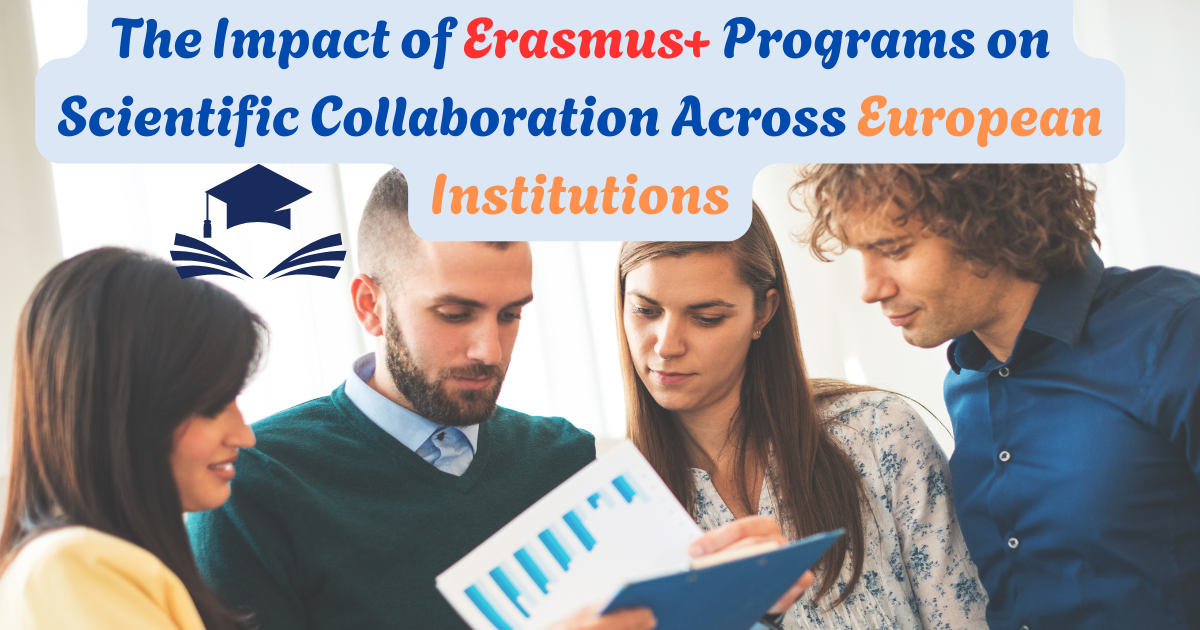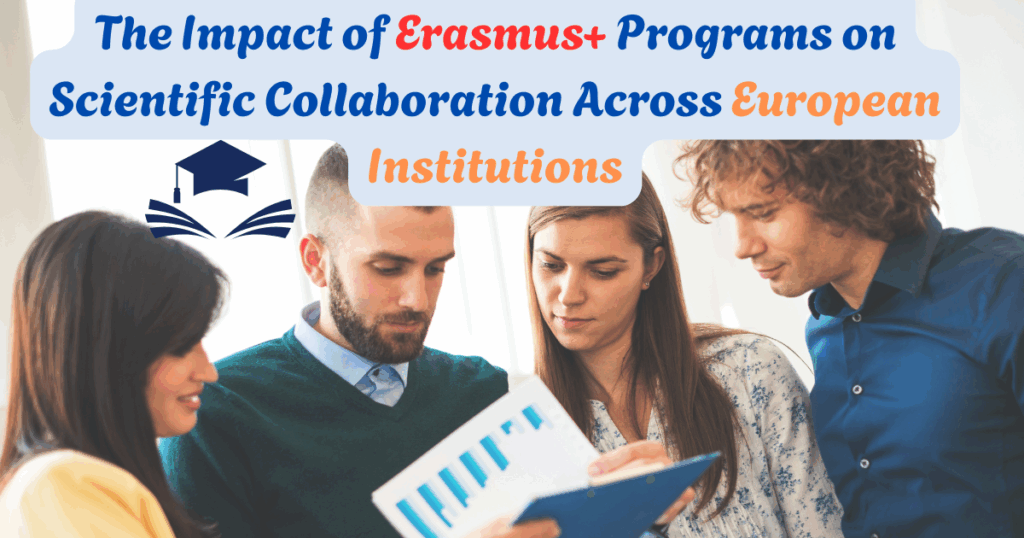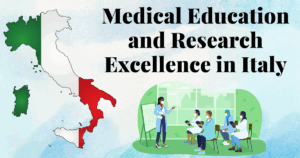The Impact of Erasmus+ Programs on Scientific Collaboration Across European Institutions: According to a recent study, the EU’s Erasmus programme for mobility and cooperation in higher education has been a strong driving force in shaping the landscape of higher education in Europe.
The Impact of Erasmus+ Programs on Scientific Collaboration Across European Institutions:
The programme, which is particularly popular for its students’ mobility activities, has contributed to improving, opening up and modernising both higher education institutions and education policies. For the vast majority of them, participation in Erasmus has led to innovation in core activity areas such as teaching and learning methods, recognition of study periods, and support services for students.

For the last few decades, European higher education has gone through significant transformation which has been driven by broad global developments, such as the massification of higher education, global competition, and the economic benefits of education. The direct and indirect influence of the European dimension is another force that gradually changes the nature of higher education in Europe.
This Lisbon process seeks to reform the continent’s still fragmented national systems into a more powerful and more integrated knowledge-based economy in which higher education is regarded as one of the key drivers of innovative capacity.
The programme facilitates staff mobility for teaching and training. Academics and administrative staff can exchange knowledge, best practices, and innovative teaching methods across institutions.
The realities of today’s world require institutions to focus their efforts on the citizens of the coming decades. They must have the skills to face new challenges: The movement of people between countries, political restructuring, and the socioeconomic order all call for transformations that will require the participation of responsible citizens who are sensitive to cultural differences and knowledgeable about the international sphere in the Erasmus.
Erasmus+ Programme Guide
The study shows that 92% of employers are looking for personality traits boosted by the programme, such as tolerance, confidence, problem-solving skills, curiosity, knowing one’s strengths and weaknesses, and decisiveness when making a recruitment decision.
General objective
The general objective of the programme is to support, through lifelong learning, the educational, professional and personal development of people in education, training, youth and sport in Europe and beyond, thereby contributing to sustainable growth, quality jobs and social cohesion, driving innovation and strengthening European identity and active citizenship.
According to a recent study, the EU’s Erasmus programme for mobility and cooperation in higher education has been a strong driving force in shaping the landscape of higher education in Europe. The programme, which is particularly for its student mobility activities, has contributed to the programme, which is improving, opening up and modernising both higher education institutions and education policies.
Global Challenges
Across the world, policymakers and educators recognise the role of education to address the many challenges that face us, such as
- The Climate emergency
- Conflict
- Recovery from the COVID pandemic
- The need for re-Skilling as artificial intelligence starts to shape how we work and how we learn
Erasmus+
Erasmus not only improves career prospects, but it also offers students broader horizons and social links. 40% have changed their country of residence or work at least once since graduation, almost double the number of those who were not mobile during studies. While 93% of students with international experience can imagine living abroad in the future, this is the case for only 73% of those who stay in the same country during their studies.
The process seeks to reform the continent’s still fragmented national systems into a more powerful and more integrated knowledge-based economy in which higher education is regarded as one of the key drivers of innovative capacity. Subsequent communications from European policy makers have strengthened the belief that higher education institutions will be crucial to Europe’s future well-being and that stronger cooperation between countries and universities in this endeavour is a necessary condition for success.
Conclusion
In this article we discussed the impact of Erasmus+ programmes on scientific collaboration across European institutions: According to a recent study, the EU’s Erasmus programme for mobility and cooperation in higher education has been a strong driving force in shaping the landscape of higher education in Europe. The realities of today’s world require universities to focus their efforts on the citizens of the coming decades.









